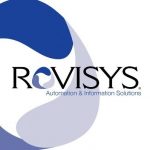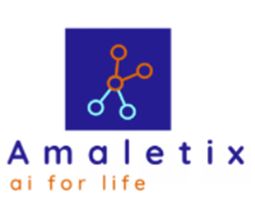Date: Wednesday, December 22, 2021
Duration: 13:00– 16:00
Room: TBD
Expected headcount: 100
Date: Wednesday, December 22, 2021
Duration: 13:00– 16:00
Room: TBD
Expected headcount: 100

co-Organizer:
Prof. Gokarna Sharma

Panelist-1:
Chris Conry

Panelist-2:
Aman Singh

Panelist-3:
Doug Meil

Panelist-4:
Rajiv Mishra

co-Organizer:
Prof. Austin Melton
This is a call for contribution (2-4 pages extended abstract) to gain better visibility. This Industry Forum publication can expand your work’s influence and prominence in the IHCI field. Refer to the call for contributions for more information.
The recurring IHCI Industry Forum is a showcase of successful HCI, AI-based businesses, and metaverse-ecosystems from across the globe, featuring renowned entrepreneurs talking about their successes and failures, business models, market potentials, and technology trends. It is open to all attendees of IHCI, particularly interesting for those aspiring for IHCI and AI entrepreneur careers.
This year again, the program includes three key tracks: traditional Industry Forum, IHCI Innovation & Entrepreneurship Forum, and the IHCI Awards.
The IHCI Award session will highlight and honor the achievements of inventors and whose ideas translate into world-class products. The award is sponsored by the IHCI Society.
Each presentation is scheduled for 15 minutes beginning at 2:00pm on Tuesday.
After the six presentations, we should have (if we are on schedule) 30 minutes for questions and answers.
co-Organizer


Gokarna Sharma is currently an Associate Professor and the director of Scalable Computer Architecture & Emerging Technologies Laboratory (SCALE) in the Department of Computer Science, Kent State University (KSU), Kent, OH, USA. I was an Assistant Professor of Computer Science at KSU from Fall 2015 until Spring 2021. Prior to joining KSU, I was a postdoctoral researcher in the Computer Science and Engineering division (CSE) at Louisiana State University (LSU) in Baton Rouge, LA, USA where I also received Ph.D. in Computer Science under the supervision of Prof. Costas Busch (now at Augusta University, Georgia). I received my dual degree European Master of Science in Computer Science from Faculty of Computer Science at the Free University of Bozen-Bolzano (FUB), Italy and Institute of Computer Languages at the Vienna University of Technology, Austria, under the supervision of Prof. Enrico Franconi and Dr. Peter F. Patel-Schneider. I received my Bachelor’s in Engineering in Computer Engineering from Tribhuvan University, Nepal. I interned as a Summer Consultant at Alcatel-Lucent Bell Labs in Summer 2008. I received a US National Science Foundation (NSF) CAREER award in 2021.
co-Organizer


Austin Melton is a retired faculty member from the Department of Computer Science and the Department of Mathematical Sciences at Kent State University. His research interests include software measurement, the semantic web, many-valued mathematics, and topological systems.
Presentation Title: Types of Interaction in Human-Computer Interaction


Chris Conry is a Group Manager in the Industrial Artificial Intelligence division at RoviSys. RoviSys is the nation’s largest independent integrator improving manufacturing operations in 12 different markets from Pharmaceuticals to Power and Energy. The Industrial Artificial Intelligence division at RoviSys is focused on AI/ML solutions, Data Infrastructure, and Custom Software solutions across all markets.
Operators Relationship with AI:
Manufacturing Operators are experts in their areas of work. Many spend up to 30 years in the same production line developing an unmatched intuition. Problem is, when these subject matter experts retire, they take that intuition with them. Machine Learning solutions are excellent ways to build an impart that process intuition into a predictive model. Chris Conry will discuss the challenge of gaining the trust of these expert operators to support AI solutions.
User Experience in the world of Manufacturing:
Manufacturing HMI (Human Machine Interface) and SCADA (Supervisory Control and Data Acquisition) systems offer a much more primitive interface compared to modern application interfaces. Chris Conry will cover challenges and strategies to develop design languages and user experiences to create cohesive experiences for operators.


Aman Singh is a chief project engineer at COIKOSITY Pvt Ltd. Where he is responsible to solve the problems occurring in the detection of gastrointestinal signals to diagnose stomach diseases. He is a graduate in Electrical Engineering from Indian Institute of Technology (IIT) Delhi, India.
Topic: Blockchain Enabled Healthcare Monitoring Medical Device
Aman Singh, Chief Project Engineer, COIKOSITY Pvt. Ltd.
B.Tech Department of Electrical Engineering, Indian Institute of Technology Delhi (IIT Delhi)
Title: Human Centric Interface: Blockchain-Enabled Gastrointestinal Tract Diagnosis Healthcare System
Abstract
We are developing a system which acts as an interface for the doctor to diagnose the diseases of the patient, related to GastroIntestinal Tract or Stomach. It is a non-invasive, portable IoT device. There are some companies who claim to provide EGG signals, but we have upgraded our device with a patent by our company, which categorises the signals obtained from the device into sections, making it easier for the doctor to correctly diagnose the diseases.
Why is it important?
There are several diseases which are directly related to stomach upset, and affecting a significant amount of the population e.g. About 20% of Americans suffer from GERD(Gastroesophageal Reflux Disease), Peptic Ulcer Disease affects over 15 million Americans, More than 15 million Americans have Irritable Bowel Syndrome, just to name a few. Reference: HealthGrade.
Some are acute while others are chronic too, timely diagnosis of diseases can be instrumental in curing diseases.
An embedded system with electrodes, for capturing EGG signal from the stomach and initial processing of the signal. Signal is sent to Mobile App, or WebApp through Wifi or bluetooth, for final processing and display.
It enhances in a comfortable way as it is portable and non-invasive.
Interface is quite simple and straightforward for a doctor to understand its working.
It enhances the doctors ability to correctly diagnose the diseases.


Portfolio Architect at Ontada
Doug Meil was the founding engineer at Explorys, a healthcare analytics startup acquired by IBM, and also founded the Cleveland Big Data Meetup in 2010.
Title for the talk: Challenges of Electronic Health Record User Interfaces.
Abstract: There are many challenges for managing health data, some clinical, some technical, and some cultural. This talk will present a short case study of managing vitals over time.


Rajiv Mishra is a neuroscientist with his PhD from Institute of Science and Technology Austria and has worked as scientist at Janssen Belgium (J&J family). He is founder of iOligos Technologies -(a neurotech company with focus on developing a diagnostics platform for neurological disorders specially Alzheimer’s Disease) and Amaletix – (a healthcare AI/ML driven analytics company).
Title for the talk: Mastishk: Decoding early symptoms of mental illness with advanced technologies.
Abstract:
There is a need for the first level mental health screening for individuals at large. Mental health is widely ignored and should be brought in the mainstream of regular checkups. In the 2017, World Health Organization (WHO) survey revealed that India had the world’s highest number of people suffering from depression, and the second-highest number of people with anxiety, after China. In another, WHO report, the economic impact of the mental-health crisis in India has been estimated over a trillion dollars in lost productivity between 2012 and 2030.
Unavailability of metric-based screening tools, lack of awareness and empathy, attached social stigma and severe scarcity of trained healthcare workers are some of the key determinants of the mental health problem. What is needed urgently is universal access to the 1st level screening and its inclusion in regular health checks by empowering current work force with technological solutions. Additionally, active policy interventions and resource allocation by the government and putting mental disorders under the ambit of life/health insurance would be required.
“मस्तिष्क” (Mastishk) is envisioned to transform first level screening using advanced artificial intelligence and machine learning analytics bringing in access simplicity through a user-friendly mobile application. This will bring in data from multiple medical and non-medical devices, wearables, IOT sensors, and questions based on standard psychometric testing methods. This will be accessible to all health workers, Individuals, doctors, institutions, and many other stakeholders, be it in Metro Cities, Small Towns or Villages of India.
Can be used as input for diagnosis, treatment and prognosis of individuals or groups